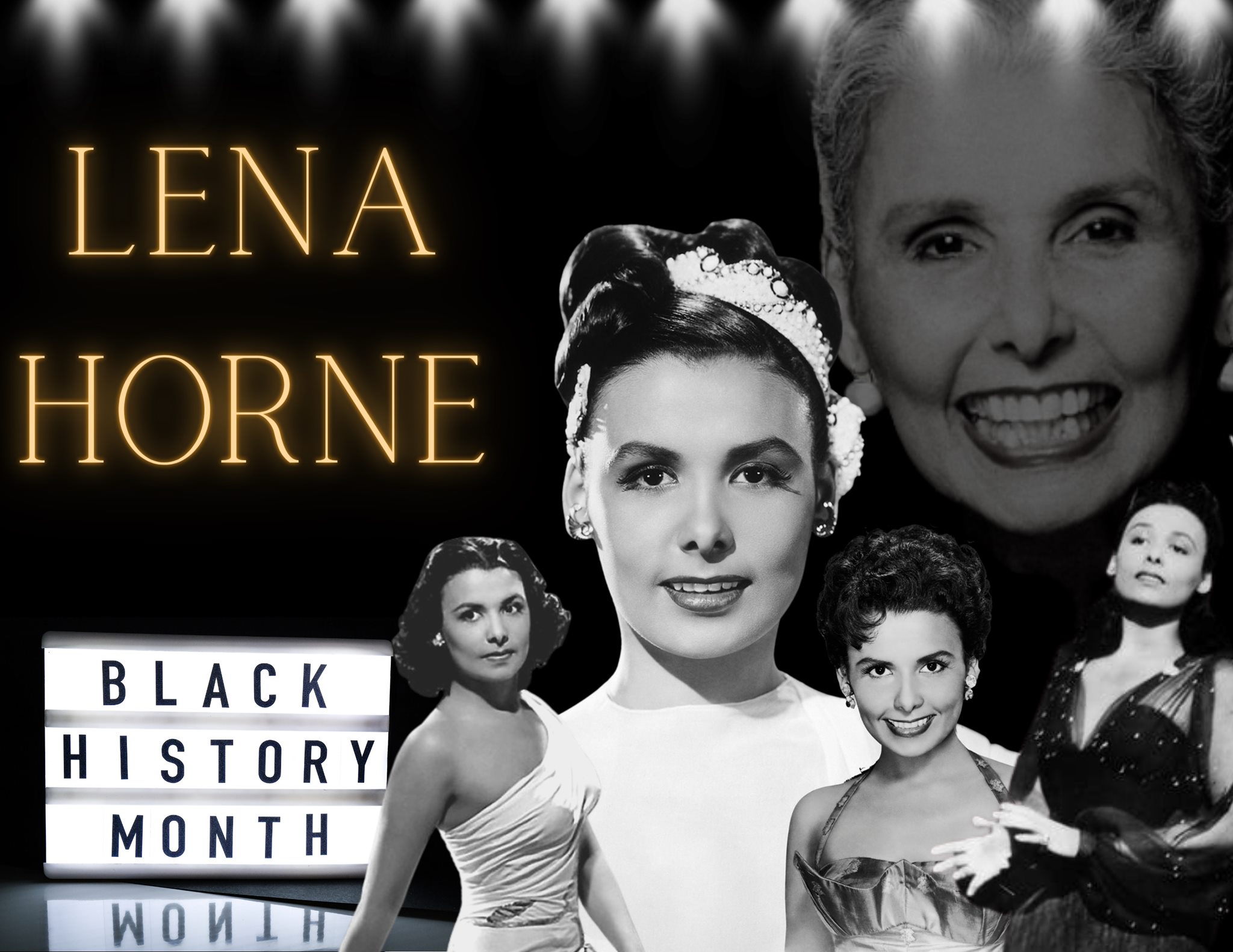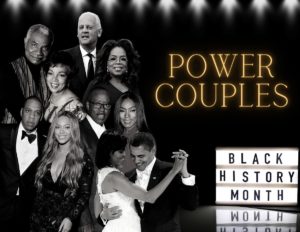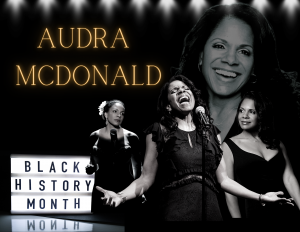Following in Josephine Baker’s footsteps as an early Black performer and groundbreaker was Lena Horne. Lena Calhoun Horne was born June 30, 1917, in Brooklyn, New York. Her parents’ marriage failed when she was a very young child, which led to her being primarily raised by her grandparents, who were prominent people within their community and members of the NAACP.
Horne’s mother was a stage actress who travelled extensively, and for a part of her childhood, Horne toured with her. When she was just 16-years-old, Lena’s mother got her a job performing at the Cotton Club, where she would go on to sing with Cab Calloway and his orchestra. She began to develop a career as a singer, and by the early 1940s she performed her own solo show at Carnegie Hall.
In 1942, Horne moved to Los Angeles and became one of the very first black performers to sign a major contract with a studio when she signed with MGM. She began a film career that would span decades, with credits that included Cabin in the Sky (directed by Vincente Minnelli), Stormy Weather, Ziegfeld Follies, and later, The Wiz. Her haunting and expressive performance of the title track from Stormy Weather would become one of her signature songs.
Though she was featured in many big musical films early in her career, she was frustrated by the way in which she was used, often being given only a song here or there or short scenes that could easily be cut from the film if necessary, particularly when these films were shown in the South. She often felt as though her race held her back at MGM, keeping her from being able to get some of the meatier roles she was interested in. She consistently turned down parts that would have portrayed her in any type of “stereotypical” role.
When WWII broke out, Horne became an extremely popular U.S.O. performer. She refused to perform for segregated audiences while on these tours, and she spoke out about the mistreatment she witnessed toward black soldiers. She later claimed that because of this outspokenness, as well as her friendship with prominent leftists of the time, she was blacklisted and unable to get work in film for years, though some people dispute this claim. She was, however, able to get extensive work in nightclubs, as well as television appearances, including multiple guest spots on Your Show of Shows. In 1957, she put out the album, Lena Horne at the Waldorf-Astoria, a hit record that stayed at the top of the charts for several weeks. That same year, she performed on Broadway in the musical Jamaica, for which she received a New York Drama Critics’ Poll Award. She continued performing and recording for decades, and she performed a widely praised and multi-award-winning one-woman show in the 1980s called Lena Horne: The Lady and Her Music.
In addition to her work as an entertainer, Horne was a long-time civil rights and political activist, and she became increasingly involved in her activism in the early 1960s. She was present at The March on Washington in 1963 with Dr. Martin Luther King, Jr. She spoke at civil rights demonstrations throughout the South and was a supporter of the National Council for Negro Women. Horne was a lifelong member of the NAACP and was awarded their Spingarn Medal for African American Achievement in 1983.
Lena Horne died on May 9, 2010, of congestive heart failure at the age of 92. She left behind a daughter, six grandchildren, and countless fans. Her work and fight for justice and equality paved the way for many performers of color that have followed, and her influence is likely to be felt for generations to come.




